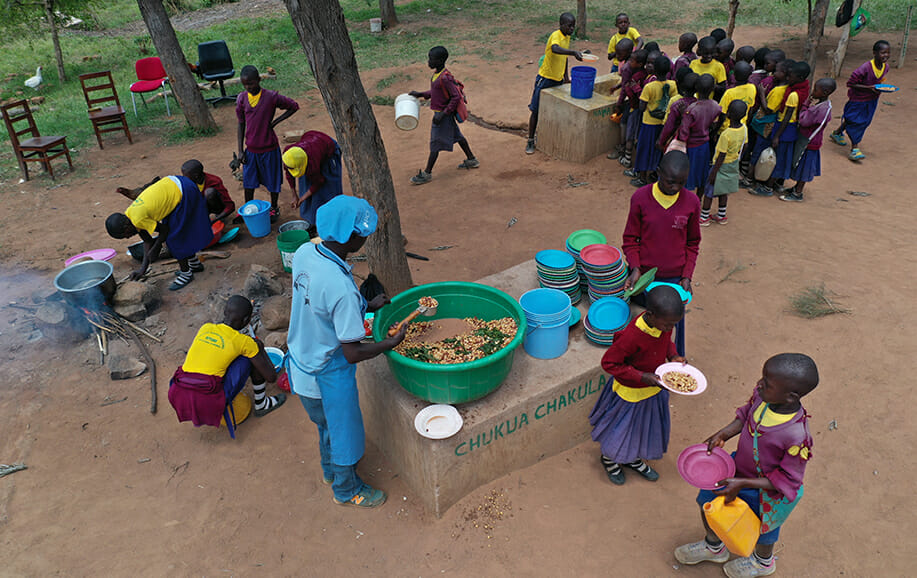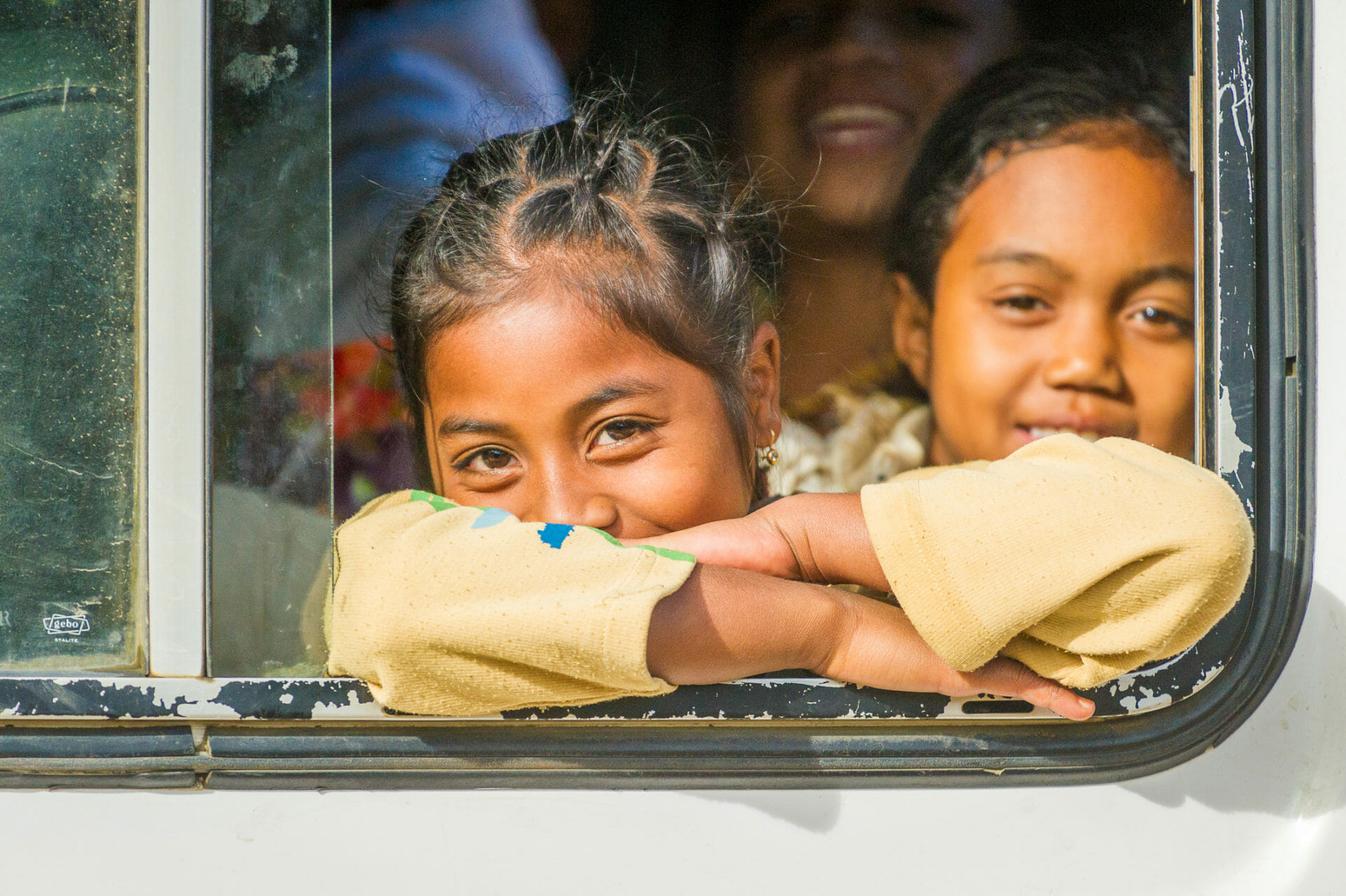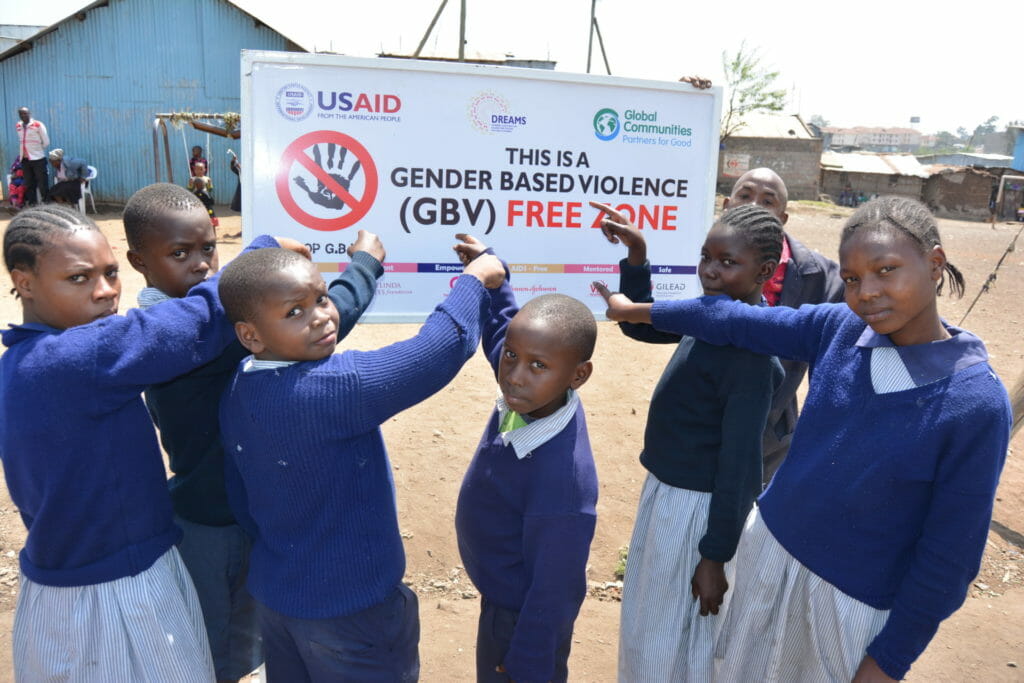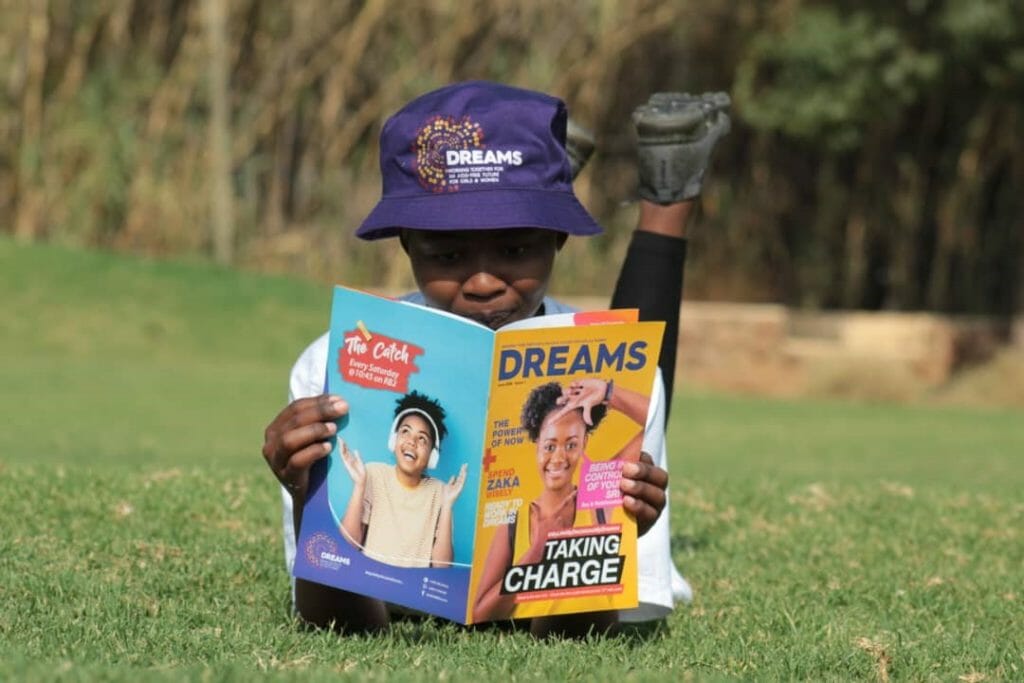Madagascar conjures images of vibrant ecosystems with plant and animal life that cannot be found in any other location across the globe. However, while rich in biodiversity, Madagascar is one of the poorest countries in the world with more than three-fourths of the population living below the poverty line.
Climate change has also heavily impacted Madagascar. Due to shifting weather patterns, the country has experienced prolonged drought for the past four years. Particularly in the southern region, food supply has diminished and plunged the country into food insecurity and devastating chronic malnutrition. In 2021, UNICEF predicted that malnutrition among children under five had quadrupled in the past year.
Global Communities is working to provide much-needed support to the hard-hit Malagasy community through its integrated school feeding approach. This multidisciplinary, student- and community-focused approach is flexible and tailored to the unique context of each school and community and improves preschool and primary school students’ learning outcomes by increasing enrollment and attendance rates, enhancing academic performance and improving their nutritional status. Global Communities is working closely with the Government of Madagascar, schools and communities to address immediate hunger through provision of daily nutritious school meals, improved health, water, sanitation and hygiene (WASH) and nutrition practices, and strengthened local capacity to take ownership of school feeding and complementary activities for sustained impact.
Improving Students’ Literacy, Health & Nutrition through School Meals
With funding from the U.S. Department of Agriculture (USDA), Global Communities is leading a consortium of partners including Catholic Relief Services (CRS), FHI360 and Malagasy Mahomby to implement the first McGovern-Dole International Food for Education and Child Nutrition (McGovern-Dole) project in Madagascar. This new five-year project, known as Mianatra (“Learn” in Malagasy), is implemented in close collaboration with the Government of Madagascar and local communities. Over the life of the project, Mianatra will provide 4,020 metric tons of U.S. donated commodities as well as funds to procure locally grown and purchased food to provide daily school meals to an estimated 64,177 preschool and primary school students in 130 schools in Southern Madagascar. Through the provision of daily, nutritious meals, Mianatra seeks to increase enrollment and attendance, particularly for girls, reduce short-term hunger and increase attentiveness.
Mianatra will improve the quality of literacy instruction by distributing school supplies and teaching materials, establishing libraries, producing books and supplementary reading materials, and training teachers, school administrators and school management committees. To improve student attendance, Mianatra will provide daily, nutritious meals and increase economic incentives for parents and families through savings and lending groups. Mianatra will also improve health, nutrition and dietary practices and will increase access to clean water and improved sanitation services through the construction of latrines, hand-washing stations and water points. Mianatra will partner with the Government of Madagascar, schools and communities to develop pathways and a model for school feeding and complementary activities and support the expansion of Madagascar’s National School Feeding program.
130
targeted schools to be reached through the life of Mianatra
64,177
students benefiting from daily school meals by the end of Mianatra
4,020
metric tons of U.S. donated commodities
Our Work in Madagascar
School Feeding
Delivering Healthy School Meals and Integrated Nutrition and Literacy Programs
Sanitation & Hygiene
Advancing the Goal of Clean Water for All
Expanding Economic Opportunity
Supporting Small and Medium-Sized Businesses and Community Savings and Lending Groups
Governance
Strengthening Civil Society, Democracy and Responsive Government
Positive Youth Development
Equipping Young People for Leadership and Success
Gender Equality & Social Inclusion
Lifting Marginalized Voices and Investing in Women as Leaders and Men as Allies
Health
Combating Disease, Improving Nutrition, and Ensuring Healthy Mothers, Children and Adolescents
Resilience
Enhancing Food Security, Sustainable Agriculture and Water Management in Climate-Affected Communities
Resources
Briefs & Case Studies
CVCFG: ASGM Logistics in Eastern DRC Learning Brief
USAID’s Commercially Viable Conflict-Free Gold (CVCFG) Project, known locally as “Zahabu Safi” is a five-year project, implemented in the Democratic Republic of the Congo (DRC) by Global Communities and Levin Sources. The project is designed to build on recent successes achieved by donor-funded initiatives to export responsibly sourced gold to jewelry buyers in North America…
Briefs & Case Studies
Program Brief: USDA Chakula Chetu Local and Regional Food Aid Procurement Program in Tanzania
In 2017, USDA funded a Local and Regional Food Aid Procurement (LRP) program, called Chakula Chetu, meaning Our Food in Swahili. Chakula Chetu complements Project Concern International (PCI), a Global Communities Partner’s McGovern-Dole program in Tanzania, FFE III. Emphasizing local capacity strengthening to promote long-term ownership and sustainability, Chakula Chetu delivers a cost-effective and timely…
Research & Publications
An Infant Carrier Intervention and Breastfeeding Duration: A Randomized Controlled Trial
Emily E. Little, PhD, CLEC, Camille C. Cioffi, PhD, Lisa Bain, MPH, Cristine H. Legare, PhD, Jennifer Hahn-Holbrook, PhD OBJECTIVES: Parent-infant skin-to-skin contact immediately after birth increases initiation and abstract duration of bodyfeeding. We hypothesized that providing ergonomic carriers to parents during pregnancy would increase the likelihood of breastfeeding and expressed human milk feeding through…
Briefs & Case Studies
Improving Key Water, Sanitation and Hygiene Practices in Ghana Through A Behavior-Led Approach
Years of effort and focus by the Government of Ghana and its partners have yielded significant improvements in the country’s child morbidity and mortality rates. Still, every year, at least 4,000 Ghanaian children die from diarrhea, and 23% experience chronic malnutrition linked to poor water and sanitation.(1) To help improve these numbers, USAID funded the…
Toolkits & Manuals
Guía Metológica para Análisis de Rumores sobre COVID-19
El abordaje metodológico y analítico sobre rumores constituye la base fundamental que proporcionará la información y resultados necesarios para la erradicación efectiva de rumores prevalentes sobre COVID-19. La presente guía describe los pasos metodológicos a seguir, tanto para el análisis de datos como para la formulación de los mensajes antirumores.
NEWS
Latest stories from the blog

Strengthening School Feeding Systems in Tanzania
For the past 10 years, PCI, a Global Communities Partner, has implemented integrated school feeding programs that help deliver essential nutrition, education, health and development …
Read More



